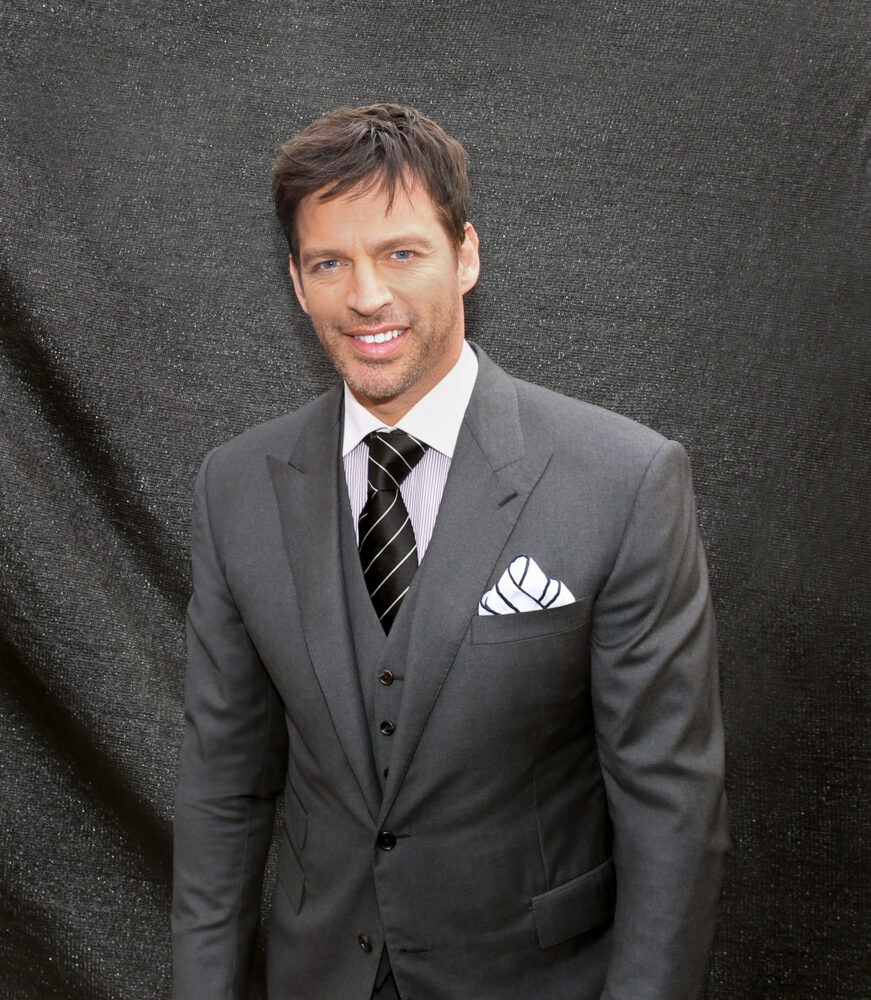Harry Connick Jr.
Harry Connick, Jr. is a pianist and vocalist, bandleader/composer, and actor from New Orleans.

Courtesy of Wikimedia Commons.
Harry Connick Jr. in 2014.
Harry Connick Jr. is a pianist, vocalist, bandleader/composer, actor, and multi–Grammy Award winner from New Orleans. Born into a prominent New Orleans family, he was performing publicly in New Orleans by the age of five, making an early name for himself as a precocious and gifted performer. A student of both James Booker and Ellis Marsalis, two of New Orleans’s most legendary and gifted pianists, Connick relocated to New York City at the age of eighteen and within a year had signed a recording contract with Columbia Records. He would soon follow his passion for acting as well, starring in numerous roles in film, television, and on the Broadway stage over the course of his long career. Often called a modern-day Frank Sinatra, Connick is one of the top-selling jazz artists of all time.
Early Life
Joseph Harry Fowler Connick Jr. was born in New Orleans on September 11, 1967. His father, who was born in Mobile, Alabama, but grew up in New Orleans, was elected Orleans Parish District Attorney in 1973, when he unseated incumbent Jim Garrison. He held the position for thirty years. Harry’s mother, Anita Frances (née Levy; later Livingston), was of Jewish ancestry and came from New York. Beginning in the late 1950s, Harry’s parents––who were both musicians––ran a record store called Studio A, located on Harrison Avenue near City Park in New Orleans. The couple would eventually own two record stores, using the income to help put themselves through law school. By the time Harry was born in 1967, both of them were practicing lawyers. Anita would become not only one of the first women judges in the city, but also, eventually, a Louisiana Supreme Court justice. Harry Jr. and his sister, Suzanna, were raised in the Lakeview neighborhood of New Orleans. Anita died of ovarian cancer when Harry was thirteen.
At age five, Harry Connick Jr. performed “The Star-Spangled Banner” on piano at a political rally for his father, who had just launched his campaign for district attorney. By nine, the young performer had joined the musicians union. A year later he was recording with local artists. Young Harry’s piano playing was further encouraged by his apprenticeship with the legendary New Orleans pianist James Booker, a friend of Connick’s father. Booker allowed the pianist to sit in with him at gigs at local clubs, and Connick famously performed alongside Booker at the 1982 New Orleans Jazz and Heritage Festival. Connick speaks extensively about his years with Booker in the 2013 documentary film, Bayou Maharaja: The Tragic Genius of James Booker.
While enrolled at Jesuit High School, Connick also began taking classes at the New Orleans Center for the Creative Arts (NOCCA) with pianist Ellis Marsalis, the patriarch of the city’s famed Marsalis jazz dynasty. After graduating from high school, Connick spent a semester at Loyola University in New Orleans but in January 1986 relocated to New York City. There, he studied at the Manhattan School of Music alongside longtime friend Wynton Marsalis and immersed himself in the local bar and venue gigging scene. Within a year, Connick had signed to Columbia Records and released his self-titled debut album. His 1988 follow-up album, 20, further showcased his multitude of talents, introducing him to the world as the all-around entertainer he would grow to become.
Musician, Actor, and Philanthropist
Connick’s big musical break came in 1989, when director Rob Reiner chose him for the film soundtrack to When Harry Met Sally. This experience of working with a big band on the soundtrack arrangements led Connick to form his own big band, with which he continues to tour today. By adding a classic pop treatment to traditional jazz performance, aided by his smooth vocal timbre and delivery, Connick had a winning formula that sold records: by 2012, he had sold more than 28 million albums worldwide. Connick’s best-selling album to date remains his 1993 multi-platinum Christmas album, When My Heart Finds Christmas. Connick’s highest-charting album to date is 2004’s Only You, which reached No. 5 on the Billboard charts in the United States.
Connick has also enjoyed success as an actor. He has starred in more than twenty films to date, beginning with Memphis Belle (1990) and including the highly successful Hope Floats (1998), co-starring Sandra Bullock; Independence Day, the highest-grossing movie of 1996; and the more recent Dolphin Tale (2011). A two-time Emmy winner, Connick’s television work includes a turn as a recurring character on the hit television series Will and Grace (2002–2006), multiple appearances on NBC’s long-running drama Law and Order: Special Victims Unit (2012), and as a judge on Fox’s popular American Idol (2014). Christmas and Emmy-winning PBS specials, including Only You in Concert (2004) and Harry Connick Jr. in Concert on Broadway (2011), have sealed his success in the television medium. Connick has also excelled on Broadway, where he received Tony nominations as both composer and lyricist for the musical Thou Shalt Not (2001) and for his work playing the lead in the 2006 Tony-winning revival of The Pajama Game. Beginning in 2011, he starred in the Broadway revival of On a Clear Day You Can See Forever.
Connick also is known for his work as a humanitarian and activist. He was one of the first hometown celebrities to return to New Orleans after Hurricane Katrina in 2005, arriving just days after the breach of the levees. Connick was featured frequently on CNN and other major news networks immediately after the storm, advocating for emergency assistance for all those stranded and in need and encouraging people around the world to come to New Orleans’s aid. Just months after Katrina, Connick joined forces with lifelong friend Branford Marsalis and Habitat for Humanity to create the Musicians’ Village in the city’s Upper Ninth Ward. To date, the organization has built more than eighty homes, as well as a new community center, named the Ellis Marsalis Center for Music. Connick released two albums in the following two years to help draw attention to the devastation and continued rebuilding efforts: the vocal collection Oh, My NOLA (2006) and its instrumental companion, Chanson du Vieux Carré (2008).
In 1993 Connick co-founded the Krewe of Orpheus, a Carnival “superkrewe” that parades with a musical theme on the night before Mardi Gras in New Orleans. From its inception, Orpheus was open to men and women, black and white. The krewe was founded after Connick’s reign in the all-male, all-white Bacchus parade that year. “I remember being on a float in Bacchus looking down and seeing all these [black] kids and thinking, ‘What are they thinking about?’” Connick told The Times-Picayune in 2013. “They see all these glittering, pretty costumes with all these white people, and the only black people they were seeing were in a marching band or [carrying] flambeaux. And my wife couldn’t ride with me. … [T]here was nothing representing our city as a whole. I thought there should be at least one parade that had everybody. I wanted to see Mardi Gras through a different lens.” Filling the Monday-night spot on the traditional Mardi Gras parade calendar, Orpheus was an immediate hit with parade-goers and spurred the development of day-long Lundi Gras activities and entertainment on the New Orleans riverfront.
Harry Connick Jr. married model/actress Jill Goodacre in 1994. The couple and their three children reside in New Canaan, Connecticut, and New York City. Connick’s humanitarian work has been acknowledged with a Redbook Strength and Spirit Award, an honorary degree from Tulane University, a 2010 National Building Museum honor, and the 2012 Jefferson Award for Public Service.
